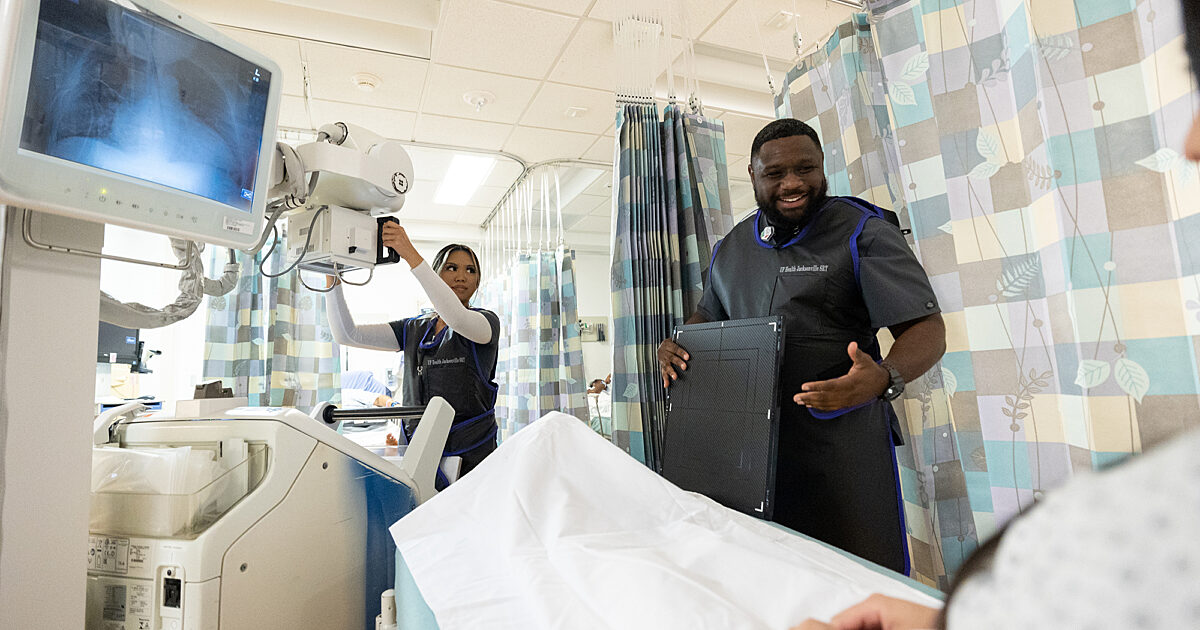Table of Contents
ToggleRadiology Tech Schools
Radiology technology is a field of healthcare that offers rewarding career opportunities for individuals interested in diagnostic imaging. Choosing the right radiology tech schools near me is crucial for laying a solid foundation for your career. In this comprehensive guide, we explore various aspects of radiology tech programs near you, including program types, requirements, and factors to consider when selecting a school.
Understanding Radiologic Technology Programs
What Are Radiologic Technologist Programs?
Radiologic technologist programs prepare students for careers in medical imaging, including X-rays, MRIs, and CT scans. These programs typically combine classroom instruction with clinical training to equip students with the necessary knowledge and skills.radiology tech schools near me
Types of Radiologic Technologist Programs
- Associate’s Degree Programs: These programs usually take two years to complete and are offered by community colleges or vocational radiology tech schools near me .
- Bachelor’s Degree Programs: Bachelor’s degree programs in radiologic technology are often available at four-year colleges and universities, providing a more in-depth education and potentially better career prospects.
- Certificate Programs: Certificate programs are shorter and more focused, designed for individuals who already hold a degree in a related field or have relevant work experience.
Finding Radiologic Technologist Schools Near You
Factors to Consider When Choosing a School
- Accreditation: Ensure that the program is accredited by the Joint Review Committee on Education in Radiologic Technology (JRCERT) to guarantee quality education and eligibility for certification.
- Clinical Opportunities: Look for programs that offer ample clinical experience in reputable healthcare facilities, allowing you to apply theoretical knowledge in real-world settings.
- Faculty Expertise: Investigate the qualifications and experience of faculty members to ensure they can provide high-quality instruction and mentorship.
- Resources and Facilities: Consider the availability of state-of-the-art equipment and resources necessary for hands-on learning and skill development.
Radiologic Technology Schools Near Me: Where to Look
- Local Colleges and Universities: Start your search by exploring radiologic technology programs offered at colleges and universities in your area.
- Online Resources: Utilize online databases and directories to find radiologic technology schools near you, filtering by location and program type.
- Professional Associations: Contact professional organizations such as the American Society of Radiologic Technologists (ASRT) for recommendations and resources.
Exploring Radiology Programs Near Me
Overview of Radiology Programs
Radiology programs encompass various specialties within diagnostic imaging, including X-ray technology, MRI, CT scans, and more. Whether you’re interested in becoming a radiologic technologist, MRI technologist, or CT technologist, there are programs available to suit your career goals. radiology tech schools near me
Types of Radiology Programs
- Radiologic Technology Programs: Focus on X-ray imaging techniques and prepare students for careers as radiologic technologists.
- MRI Technologist Programs: Specialize in magnetic resonance imaging (MRI) technology, teaching students how to operate MRI machines and interpret results.
- CT Technologist Programs: Train students in computed tomography (CT) scanning procedures, including patient preparation, image acquisition, and radiation safety.
Choosing the Right Radiology Tech Program
Factors to Consider
- Program Specialization: Determine whether the program aligns with your career interests and goals, whether you’re interested in general radiography or a specific imaging modality.
- Program Length and Format: Consider whether you prefer a traditional on-campus program, an online program, or a hybrid format that combines online coursework with in-person labs and clinicals.
- Cost and Financial Aid: Evaluate the cost of tuition, fees, and other expenses associated with the program, and explore financial aid options such as scholarships, grants, and loans.
- Job Placement Rates: Research the program’s track record in terms of job placement and post-graduation employment opportunities.
Navigating Radiology Tech Classes and Courses
Core Curriculum Components
- Anatomy and Physiology: Gain a thorough understanding of human anatomy and physiology, particularly as it relates to diagnostic imaging procedures.
- Radiographic Imaging Techniques: Learn the principles and techniques of radiographic imaging, including positioning, exposure factors, and image processing.
- Radiation Protection and Safety: Understand the importance of radiation safety practices and protocols to minimize radiation exposure to patients and healthcare personnel.
- Clinical Practicum: Apply classroom knowledge in clinical settings under the supervision of experienced radiologic technologists, gaining hands-on experience in performing imaging procedures.
Pursuing a Career as a Radiology Technician
Job Outlook and Opportunities
The demand for radiologic technologists and technicians is expected to grow in the coming years due to advances in medical technology and an aging population. Graduates of radiology tech programs can pursue various career paths in hospitals, imaging centers, physician offices, and other healthcare settings.
Certification and Licensure
After completing a radiologic technology program, aspiring radiologic technologists must obtain certification from the American Registry of Radiologic Technologists (ARRT) by passing the ARRT certification exam. Some states also require licensure to practice as a radiologic technologist.
Embarking on Your Radiology Tech Journey
Choosing the right radiology tech school is a crucial first step toward a rewarding career in diagnostic imaging. By thoroughly researching and evaluating radiologic technology programs near you, considering factors such as accreditation, clinical opportunities, and program specialization, you can set yourself up for success in this dynamic and fulfilling field. Whether you’re interested in general radiography, MRI technology, CT scanning, or other specialties, there are programs available to help you achieve your career goals in radiology.

